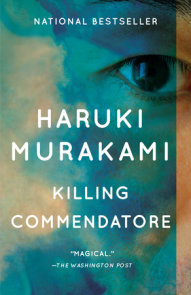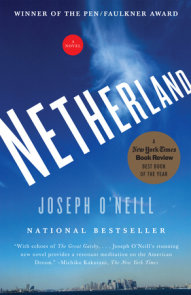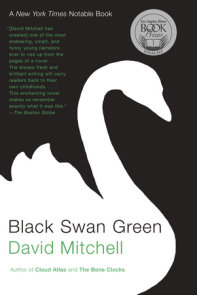READERS GUIDE
The discussion questions, introduction, author biography, and suggested reading list that follow are intended to enhance your group’s reading of Kazuo Ishiguro’s When We Were Orphans. We hope they will aid your understanding of the compelling themes and ideas that underlie this masterful novel and its deeply moving exploration of the power of one’s past to shape and define the present.Introduction
The maze of human memory–the ways in which we accommodate and alter it, deceive and deliver ourselves with it–is territory that Kazuo Ishiguro has made his own. In his previous novels, he has explored this inner world and its manifestations in the lives of his characters with rare inventiveness and subtlety, shrewd humor and insight. In When We Were Orphans, he returns to this terrain in a brilliantly realized story.Christopher Banks, an English boy born in early twentieth-century Shanghai, is orphaned at age nine when his mother and father both vanish under suspicious circumstances. Sent to live in England, he grows up to become a renowned detective and, more than twenty years later, returns to Shanghai, where the Sino-Japanese War is raging, to solve the mystery of the disappearances.
The story is straightforward. Its telling is remarkable. Christopher’s voice is controlled, detailed, and detached, its precision unsurprising in someone who has devoted his life to the examination of details and the rigors of objective thought. But within the layers of his narrative is slowly revealed what he can’t, or won’t, see: that his memory, despite what he wants to believe, is not unaffected by his childhood tragedies; that his powers of perception, the heralded clarity of his vision, can be blinding as well as enlightening; and that the simplest desires–a child’s for his parents, a man’s for understanding–may give rise to the most complicated truths. A masterful combination of narrative control and soaring imagination, When We Were Orphans is Kazuo Ishiguro at his best.
Questions and Topics for Discussion
1. The function of memory is already a major component of the narrative in the opening pages of the book: Christopher is writing in 1930 about something that happened in 1923, and within that memory are the memories of even earlier events. And throughout the book, what Christopher does and does not recollect, is of great concern for him. How has Ishiguro used the vagaries of Christopher’s memory to shape the novel? How does the narrative itself mimic the ways in which memory functions?
2. What role does Sarah Hemmings play in this early part of the novel as it relates to Christopher? What is behind her urgent need to meet Sir Cecil? What is it about Sarah that moves Christopher to tell her about his past when he had told no one else in all the years he’d been in England? Why is he "surprised and slightly alarmed" [p. 72] to have opened up to her?
3. Before Christopher returns to Shanghai, the narrative hints at what we don’t yet know, and at the complexity of what we will learn in the course of the novel. For instance, Christopher, speaking about his uncle Philip, says, "It is perfectly possible that at that stage [before the disappearance of Christopher’s father] he wished nothing but good for me, that he had no more inkling than I did of the course of things to come" [p. 85]. What is Ishiguro’s intention in using anticipatory passages such as this one? How does this narrative tool affect your reading of the novel?
4. There are hints of things to come for Christopher as an adult in his childhood detective games with Akira [p. 115], and in his staunch belief, just after his parents’ disappearances, that detectives will find them [p. 27]. Where else do you see the man in the child? And conversely, the child in the man? Do these "hints" illuminate or confuse the narrative? How?
5. Christopher’s return to Shanghai [pp. 165-67] is filled with unfamiliarity: the strange milling crowd at the Palace Hotel, the way his sight-lines are constantly being blocked, the custom of shoving. Why does Ishiguro shift the narrative here into a kind of subtle unreality where something is slightly off-kilter wherever Christopher goes? Is it a reflection of Christopher’s disorientation or something else? Why is he surprised to find himself feeling disoriented in a place he hasn’t been for some twenty years?
6. What do the people of the International Settlement expect of Christopher ("Mr. Banks, do you have any idea at all how relieved we all feel now that you’re finally with us?" [p. 171])? What is their expectation based on? For his part, does Christopher imagine that everyone equates his case–the disappearance of his parents–with staving off an escalation of war? Does he come to believe it as well, or does he imagine that the people who express relief at his arrival are as concerned as he is with finding his parents? Or is it something else altogether? Is it clear what is at the root of this particular confusion?
7. What is Sir Cecil’s role in the book? What is the significance of his candor, skepticism, world-weariness, and, finally, his physical and moral collapse in Shanghai?
8. When Sarah proposes to Christopher that he leave Shanghai with her, he acquiesces virtually without emotion [p. 230]. How do you explain his decision and the way it’s made? What might he be answering to in himself when he agrees to go with her? And what causes him to change his mind at the last moment?
9. Christopher encounters many kinds of mazes in Shanghai: the streets he must navigate as a boy when his uncle Philip deserts him in the middle of the city; the crowds he negotiates at the Palace Hotel upon his return to the city; the rooms at the Lucky Chance house; the rooms at his old house; the streets he’s driven through before he arrives at "the warren"; and, of course, the warren itself. What is the significance and function of the mazes in this novel?
10. The detective game that Christopher played with Akira just after Christopher’s father disappears [pp. 118-120] presages, almost exactly, what happens in the warren. What is the implication of this?
11. Is the man whom Christopher recognizes as Akira [p. 268] really Akira? If not, why does Christopher need to believe he is?
12. "I’m beginning to see now, many things aren’t as I supposed," Christopher says [p. 299] after he is safely out of the warren. Why now? What other revelations are contained for Christopher in his failure to find his parents? He goes on to say: "[childhood] is hardly a foreign land to me. In many ways, it’s where I’ve continued to live all my life." Has "living" in his childhood prevented Christopher from perceiving the circumstances of his own adult life with the same clarity he brings to his examinations of others’ lives? What triggers the beginning of his "journey" toward that clarity?
13. What is Christopher’s reaction when he learns that his mother finally cared nothing about the campaign against opium, and only about his well being? Does he have mixed feelings about it? Why? How do Christopher’s own actions after he learns the truth about his parents, reflect his mother’s shift from larger to more personal concerns years earlier?
14. How is Christopher’s reaction to the news that Wang Ku was his benefactor characteristic or uncharacteristic of his behavior throughout the rest of the novel?
15. When Christopher finds his mother in Hong Kong and she fails to recognize him, he asks her if she can forgive her son for not finding her [p. 331]? Why do you think he feels he has never found her even though he has? What else might he think he needs to ask forgiveness for?
16. On page 49, we learn that Sarah Hemmings is also an orphan. Are Christopher and Sarah the "we" the title refers to? Or is there a more abstract significance to the title? What do you make of the suggestion in the title that it is possible that being an orphan is not a permanent condition?
17. On the last page of the novel, referring to himself and Sarah, Christopher writes: "But for those like us, our fate is to face the world as orphans chasing through long years the shadows of vanished parents. There is nothing for it but to try and see through our missions to the end, as best we can, for until we do so, we will be permitted no calm." How do these sentiments reflect back on the book? Do they clarify, or otherwise alter the understanding of it?






















